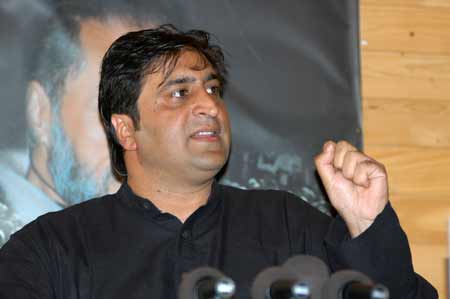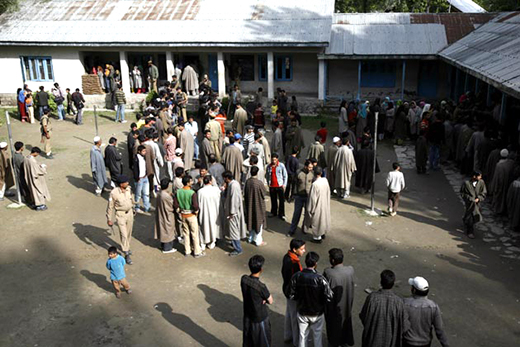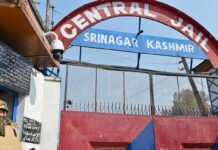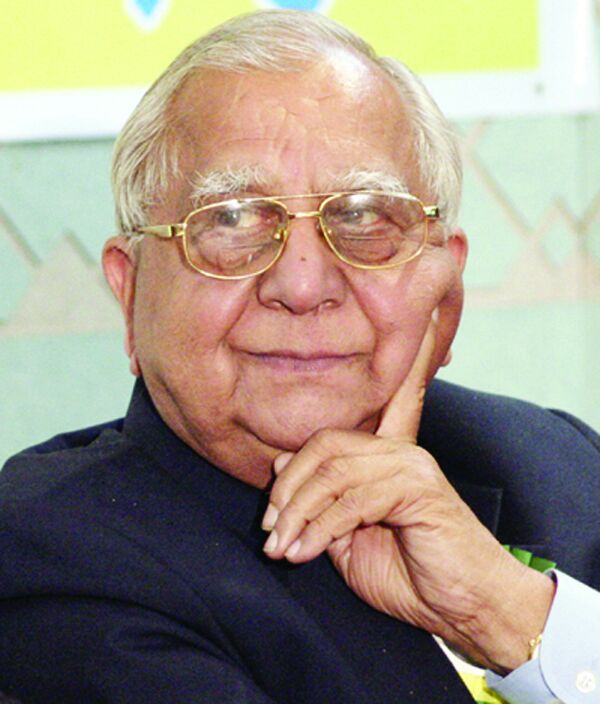
By Dr Ghulam Nabi Fai
Ved Bhasin, the chairman of the Kashmir Times group of publications passed away on November 5, 2015 in Jammu. With the passing of a journalist par excellence, who was a symbol of humanity and a champion of freedom of expression, it is the end of an era.
Ved Ji was an institution by himself. He was a great friend of voiceless people and a fearless advocate of human rights and human dignity.
He was an icon of fair and balanced journalism and certainly one of the most recognizable experts on the subject of Kashmir.
I had the honour of meeting with him in January 1994 when he was invited by ‘United States Institute of Peace’ to participate in a workshop on the subject of Kashmir. The workshop was held in suburban Washington DC and lasted for two days.
Ambassador Yusuf Buch, a Kashmiri American icon, who also attended the workshop, told me later that “Bhasin’s ideas were practical” that created a lot of interest during the Q&A session.
Bhasin had suggested, he told me, that the Right of Self Determination cannot remain confined to either deciding to join India or Pakistan. “It can be an independent state as well, it is for the people of the State to decide. No solution can be found by ignoring the people of Jammu and Kashmir, who are the basic party to the Kashmir dispute,” he quoted Ved as having said.
Ved Sahib was the firm believer of tripartite dialogue between India, Pakistan and Kashmiri leadership. He said at the Capitol Hill, Washington, DC in 2004, “The solution of the Kashmir dispute can be found through the process of dialogue but that dialogue cannot be only between India and Pakistan, but, primarily, it is a dialogue that must involve the people of Jammu and Kashmir. Without the people of the Jammu and Kashmir State dialogue can never succeed.”
Ved had the clarity of vision about the future of Kashmir. There were no ifs, and buts in his approach. He was bold enough to say it loud and clear that the only solution of Kashmir dispute is an independent state in South Asia. Ved visualized a democratic, secular, independent Jammu and Kashmir as the ideal solution. To him, that solution was the only practical solution that could satisfy, by and large, the urges and aspirations of the largest number of people in Jammu and Kashmir.
While meeting with a senior official of the State Department, Ved Ji told the official that the status quo and / or division of Kashmir were not solutions. Ved Ji said that the people will never accept the status quo as an option. He added, “the artificially divided Cease-fire Line, which not only divided the territory of the State but also divides family members. That line cannot be acceptable to the people of the State. That artificial division, whether called the line of control has actually added to miseries and suffering of the people of Jammu and Kashmir.”
When a United States Senator asked Ved Ji how to proceed to help set a stage for the settlement of the Kashmir dispute? Ved suggested without any hesitation a two-phase withdrawal of troops by India and Pakistan from the whole state. Ved added that there should be elections for the two assemblies, on the Indian and Pakistani sides of the state and the institution of a common council to discuss common issues such as tourism. The line of control would be made porous and there would be free movement of people and goods. This, Ved suggested, could be tried for a period of five years after which there could be an election for a united Constituent Assembly for the entire state, whose members would then determine the state’s status as part of India, Pakistan or whether to become independent. “We should be,” reiterated Ved Ji, “like the Switzerland of South Asia: that situation will fully satisfy aspirations of the people of the State and will lead to peace in India and Pakistan.”
Ved was the key-note speaker at an International Peace Conference held at Montevideo, Uruguay (Central America) in 2007, which was also addressed by General Ricardo Galarza of Uruguay, former Chief of ‘United Nations Military Observer Group of India and Pakistan’ (UNMOGIP)’ Ved Sahib reiterated “the Jammu and Kashmir problem has to be solved by peaceful methods.
He suggested a just and peaceful solution that is acceptable to the people of the State, belonging to different areas and various religious creeds, groups, communities. He believed that such a kind of solution can be found only through a process of dialogue and a process of reconciliation.
He was a firm believer of a non-violent resistance in Kashmir. In Uruguay he also said, “I, for one, believe that the gun is no solution. The gun cannot resolve the Kashmir crisis. Of course, as I said, I am opposed to the cult of gun, to the use of gun, but, at the same time, we must understand why the peaceful people of Kashmir who are inspired by the glorious traditions of tolerance, peace and non-violence, they were forced to guns in 1989 and after this. And I must concede that it is because of this gun that the Indian authorities were forced to concede that there exists something called the Kashmir dispute and it needs to be resolved.”
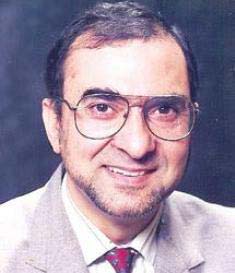
Ved Ji never compromised on the basic principles of the Kashmir dispute. He spoke in New York City on February 24, 2005, “It has been stated that Kashmir is a dispute between India and Pakistan. I personally think that there is primarily only one party to the dispute and that is the people of the State. India and Pakistan are only secondary parties. They came there because both claim that Kashmir belongs to them. Otherwise, primarily it is the problem of the people, related to their fundamental and inalienable right to decide their own future.”
The people of the State lost an iconic leader in the field of journalism. May Ved Ji’s soul rest in peace!
Views are of Dr Fai, who is the Secretary General of World Kashmir Awareness.



